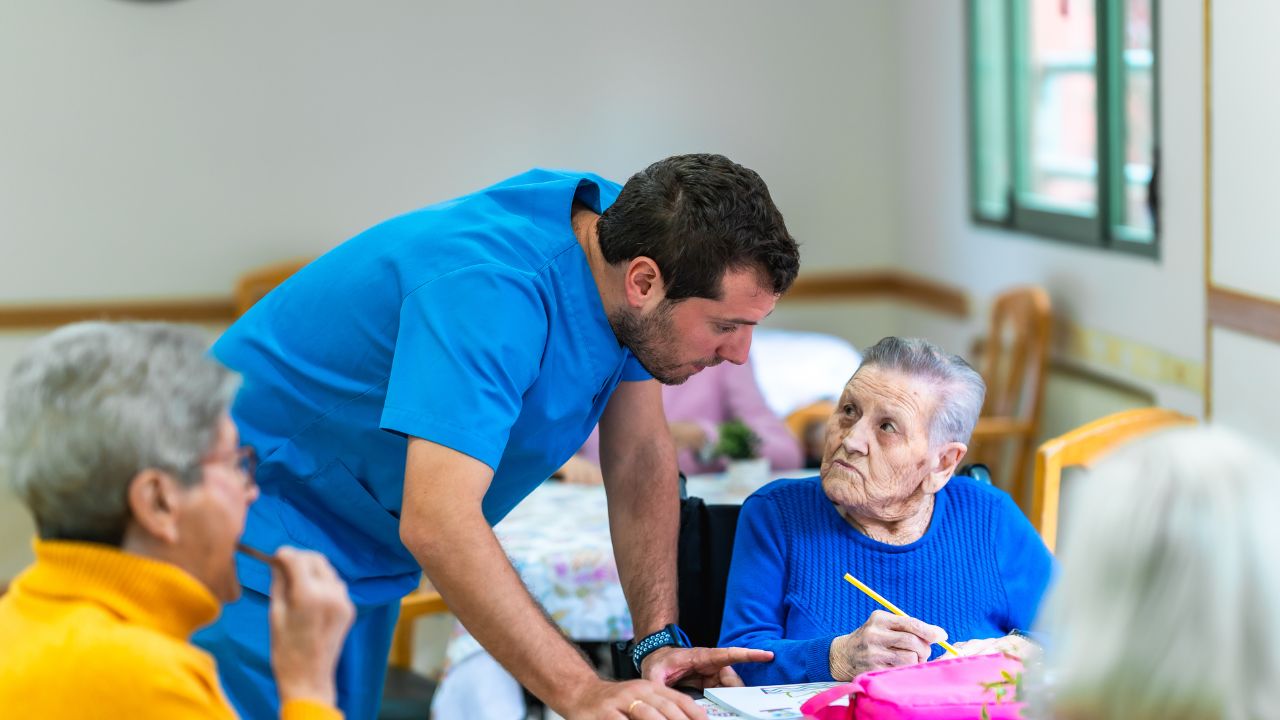Are you gearing up to leave the classroom and begin your clinical rotations? Once you enter the clinical setting, you must balance this real-life training with those long hours of studying, exams, and skill simulations. Nursing school clinicals are yet another step toward becoming a nurse. We’ve compiled a quick guide to answer questions about nursing clinicals to help you feel more prepared.
What are Nursing Clinicals?
Nursing clinical rotations are scheduled real-world opportunities to apply your learning and skills into practice while under supervision. All nursing programs are required to integrate nursing clinicals into their curriculum, although the hour requirements will vary depending on your state.
Purpose of Clinical Rotations for Nurses
The change of setting from a classroom or lab to a healthcare facility or hospital enhances your learning. Clinicals create a learning cycle where you apply theory from the classroom to real-world experience and then take it back to the classroom to analyze and assess what you did and should do moving forward, deepening your understanding.
Clinical experience pushes nursing students to adjust their thinking and decision-making under pressure. Many healthcare settings operate in a fast-paced environment, starkly different from the classroom. When faced with the authentic healthcare needs of a person in front of you, your knowledge, critical thinking, and decision-making skills are challenged and strengthened to prepare you for working as a licensed nurse after you graduate nursing school.
How do Clinicals Work?
Usually, your nursing program will schedule and facilitate your clinical placements. Clinicals are set up as rotations in different settings and specialties. If you are in an online or graduate nursing program, the responsibility to arrange your clinical placements will likely fall to you. If that is the case, ask your nursing instructor if they have any contacts or knowledge about prior student clinical placements to give you a reference point.
How Long Are Nursing Clinicals?
Clinical placements organize a schedule of hours for nursing students, which can be as little as four-hour blocks or as long as entire 8- or 12-hour shifts, just like a practicing licensed nurse.
Clinicals are usually a couple of days per week for at least four weeks in a setting. Understandably, accelerated nursing programs may have you scheduled more days per week to crunch additional clinical hours into a shorter period.
The total number of clinical hours required depends on the state and the program you are enrolled in. Bachelor of Science in Nursing (BSN) programs will likely require at least 600 hours. In contrast, Associate Degree in Nursing (ADN) programs and practical nurse or vocational nurse (LPN/LVN) programs usually have lower standards ranging from 300 to 500 hours. That information—specific to your program—should be provided to you by your nursing program.
When are Clinicals Typically Required?
When you start clinicals depends on your nursing school. Nevertheless, you can expect clinical rotations to begin after completing your general education classes, often in the first or second semester of your nursing program.
What Do You Learn in Nursing Clinical Rotations?
In your clinicals, the adage “learn by doing” applies. Implementing your knowledge and simulated skills into hands-on experience is the objective. You will be supervised but also graded. Often, nursing programs grade the clinical components as pass/fail while the clinical paperwork receives a letter grade, but you may see some that apply another method or a combination.
You’ll level up your knowledge and nursing skills and learn communication skills with your patients, other nurses, and allied healthcare professionals of different disciplines. Nursing isn’t only about science, anatomy, and healing; communication and collaboration are core components of every successful nurse.
Nursing Clinical Rotation Responsibilities and Tasks
Your responsibilities will increase gradually as you progress in the nursing program. During your clinicals, you will be doing the actual work, which means performing patient assessments, writing care plans, following care plans, providing assistance with procedures, implementing nursing interventions, administering medication, and providing direct nursing care.
What Specialties Do You Cover in Clinical Rotations?
Nursing clinical rotation types will cover a range of specializations. The placements will vary depending on your program, but generally, they will include rotations in the following settings:
- Long-term care
- Acute care
- Medical-surgical
- Pediatrics
- Labor and delivery
- Mental health
- Community settings
- Perioperative
- Emergency department
Will I Be Paid for Nursing Clinicals?
No, you will not. There are other healthcare jobs you can work as a nursing student. Working in healthcare as a nursing student can enhance your nursing foundations and provide you with experience in medical settings. One of the more popular jobs among nursing students is to work as a certified nursing assistant. Try not to fixate on the lack of payment for the work you do in your clinical placements. Hold onto a more positive perspective, focusing on the learning and the experience you are gaining, which are essential components for any working nurse.
Take the Steps to Prepare for Your Clinical Placements
Clinicals for nursing students are essential because they facilitate real nursing experiences while retaining the security of supervision so you can ask questions and learn to think critically under pressure without high stakes. According to a study in the Journal of Advances in Medical Education & Professionalism:
“The importance of optimal clinical nursing education in professional skills development is undeniable. In clinical education, nursing students are often faced with problems.”
If you’re nervous about your first clinical rotation, know that you aren’t the only one, and that is a perfectly normal biological response. Knowledge and preparedness will help that nervousness a bit. You’ve taken a step in a positive direction by looking for information about clinicals, so take it a step further and read “How Nursing Students Can Maximize Clinical Placements” to prepare.
Sources:








.jpg)





